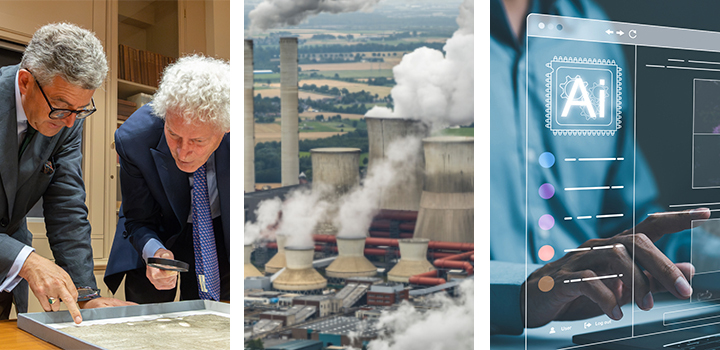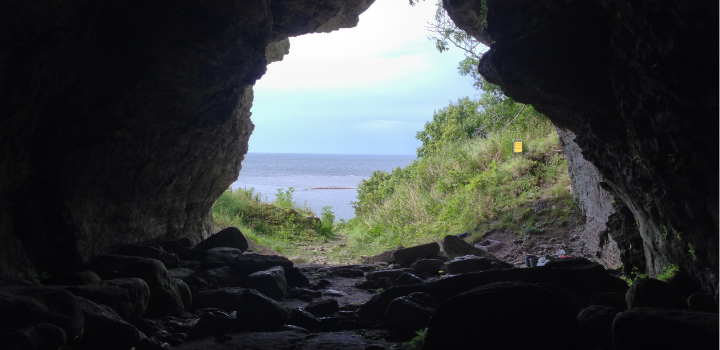£24 million for biotechnology research to address clean growth and environmental challenges
By: Communications

Six new £12 million research Hubs, the first of their kind in the UK, are being formed to utilise the latest advances in engineering biology to tackle major global challenges to our planet.
UEA researchers are involved in two of the Hubs which are part of a new £100 million investment from the UK Research and Innovation’s Technology Missions Fund and Biotechnology and Biological Sciences Research Council.
One of the Hubs, the Environmental Biotechnology Innovation Centre (EBIC), led by Cranfield University, brings together scientists from ten leading UK institutions in a mission to advance the properties and functions of micro-organisms, creating more effective ways to monitor the environment and remove pollutants.
The other nine institutions involved are the University of East Anglia (UEA), Brunel University London, the University of Essex, Bangor University, the University of Edinburgh, the University of Southampton, the University of Glasgow, Heriot-Watt University and Newcastle University.
Enormous potential of tiny ‘superhero’ micro-organisms
The UEA team, led by Associate Professor David Lea-Smith in the School of Biological Sciences, will develop synthetic biology tools and engineer microbial strains to address these environmental issues.
Dr Lea-Smith said: “UEA and the Norwich Research Park are world largest centres of excellence in microbiology research. This considerable investment from the UK government will allow us to further expand this expertise in the field of engineering biology to address some of the most pressing issues facing the UK and planet, including waste and water remediation and replacing production of chemicals from petroleum with renewable and more environmentally sustainable biological sources.”
They may be tiny, but micro-organisms have ‘superhero’ properties which give them enormous potential to have a positive impact on our world, according to Frederic Coulon, Professor of Environmental Chemistry and Microbiology at Cranfield University and EBIC Project Lead. Prof Coulon said: "Using advanced technologies, the research team will create entirely new organisms or enhance the functions of existing ones. By doing this, we can design micro-organisms that are better suited for environmental tasks like converting waste into valuable resources."
Research from lab to field applications
Working together from lab to field applications, scientists and engineers involved in the five-year project will examine ways to develop micro-organisms to target and mitigate negative impacts from polluting substances like plastic waste, hydrocarbons, metals and oil. Micro-organisms will not only be used to clean up hazardous and toxic pollutants from the environment, but also to help regenerate or recycle waste.
Cutting-edge techniques from synthetic biology, biotechnology and environmental engineering will be used. With a focus on responsible and ethical research practices, the research team is set to examine and develop new ways to tackle three key areas:
1. Next-generation bio-sensing for environmental monitoring and surveillance
2. Bio-remediation targeting environmental pollutants, promoting cleaner and healthier ecosystems
3. Enhanced wastewater and waste management to improve resource recovery, optimise treatment processes and reduce waste generation
Critical technology to address challenges
Engineering biology is identified as one of the UK Government’s five critical technologies in its Science and Technology Framework.
Prof Leon A. Terry, Pro-Vice Chancellor for Research and Innovation at Cranfield University commented: “This new research centre is set to bring together some of the UK’s leading experts in biotechnology to create a world-class Hub of excellence. Working closely with industry and focused on real-world applications, the research will develop a creative and sustainable way to address some of our most pressing environmental challenges."
ELEMENTAL
Another of the Hubs is ELEMENTAL, which is focused on new approaches to environmental processing and recovery of valuable metals towards a circular economy. The Hub is led by researchers from the University of Kent and Quadram Institute Bioscience, and includes teams from UEA, University of York, University of Manchester, University of Durham, UCL, University of Surrey, and the Natural History Museum.
Minerals and metals are essential components of many industrial and commercial processes, from nuclear power to production of mobile devices. They are a limited resource, and it is essential for sustainability that we recycle these valuable metals.
The UEA team involves researchers from the Schools of Chemistry and Biological Sciences. Prof Nick Le Brun (School of Chemistry) said:
"Recovering metals from contaminated industrial sites or from waste streams presents a huge challenge, but one that engineering biology approaches are ideally placed to overcome. This new Hub will enable a truly coordinated effort across the UK involving academics and industry.
"We will develop novel engineering biology approaches, based on microorganisms, to valuable rare earth metal processing and recovery through, for example, selective metal uptake or precipitation. The research will lead towards more sustainable management of natural resources, and the reduction of waste and pollution."
Related Articles

Polar bears may be adapting to survive warmer climates, says study
New research by scientists at the University of East Anglia (UEA) reveals a link between rising temperatures and changes in polar bear DNA, which may be helping them adapt and survive in increasingly challenging environments.
Read more
2025 – a year in research
The past twelve months have seen UEA researchers break new ground on everything from Magna Carta to the mating habits of jaguars in the Amazon. Join us as we take a look back at just some of 2025’s incredible stories, discoveries and expert insights.
Read more
Ancient wolves on remote Baltic Sea island reveal link to prehistoric humans
Scientists have found wolf remains, thousands of years old, on a small, isolated island in the Baltic Sea – a place where the animals could only have been brought by humans.
Read more